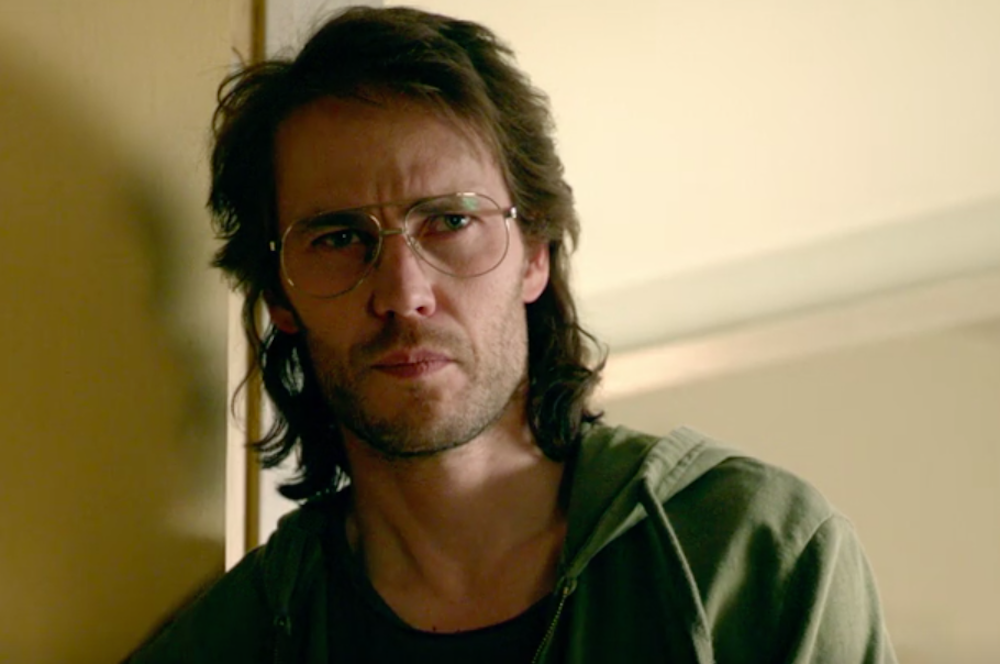Waco, the Paramount Network’s first attempt to jump on the prestige television train after rebranding from Spike TV, premiered Wednesday. The six-part miniseries is the latest of the ripped-from-the-30-year-old-headlines true crime stories so currently en vogue, and if the first three episodes are any indication, might not be entirely capable of handling the complexity of its source material. The details of the 1993 ATF raid and subsequent 51-day standoff between the FBI and the Branch Davidians sect in Waco, Texas, resulting in the deaths of four federal agents and 82 church members, are still debated today, but Waco appears to be firmly on the side of leader David Koresh.
It’s not the first true crime retelling to present a view contrary to the public’s perception of events at the time of they occurred. Both I, Tonya, and Law and Order’s recent miniseries on the Menendez brothers took a more sympathetic view of people the media had branded as villains (perhaps more successfully in Harding’s case, considering the movie didn’t entirely let her off the hook, and well, she didn’t murder anybody). But in Waco, little is made of accounts that the polygamist leader took child brides as young as twelve, or the fact that he stockpiled an armory of weapons and assault rifles allegedly in preparation for the end of days.
Taylor Kitsch (Friday Night Lights, True Detective) plays Koresh not as an egomaniacal charlatan, but an enigmatic, caring leader who truly believed what he preached. Aside from visions about the Seven Seals and forcing the other men of sect to live a life of celibacy, he seems like a pretty normal, even goofy guy—someone you could share a beer with while jamming out a “My Sharona” cover at the local bar. And to many, that’s likely who he was. The show allows for a good deal of humanizing of the Branch Davidians in ways they were never allowed by the media and government after the siege. But there’s a line separating empathetic character portrayals and going so far that you’re presenting statutory rape as no big deal, and Waco crosses it.
Waco’s particular point of view is unsurprising considering the two memoirs it pulls from: one written by former Branch Davidian and Waco survivor David Thibodeau (played in the series by Rory Culkin) and one by former FBI negotiator Gary Noesner (a characteristically great Michael Shannon), who is shown in the opening episodes fighting what he sees as the bureau’s growing tendency to use force in confrontations instead of deescalating. It’s the series’ contention (and likely the correct one, based on the findings of a Treasury investigation into the siege ordered by then-President Clinton) that regardless of what you thought of Koresh and the rest of the Branch Davidians, the ATF royally fucked up their operation, and as such, are the more responsible party for the deaths that occurred at Mount Carmel.

Also Read
The Crash of the Unicorns
The show’s critique of the over-militarization of the FBI and local police is one of its stronger and more topical elements, and will likely strike a chord with both supporters of protest movements like Black Lives Matter and anti-government conservatives like the Bundy ranchers. Waco portrays the ATF as eager for a PR win coming off the botched standoff in Ruby Ridge, Idaho, in 1992, where two civilians and one U.S. Marshall were killed. Instead of simply arresting Koresh on illegal weapons charges while he was out jogging, the hard-headed bureau chief organizes a raid with dozens of agents armed to the teeth, a sniper on a helicopter, and press coordination to broadcast their success. It doesn’t go according to plan. An agent opens fire on a barking dog, a shootout follows, people die.
The question of who can protect us from the people who are supposed to protect us is as timely as it was in the early ’90s, if not more so. It’s hard not to think of Ferguson, Missouri, or Washington, D.C., after last year’s inauguration during Waco scenes of incredulous families watching TV coverage of tanks and armored SWAT teams deployed against U.S. citizens. But the series’ substantial production budget and strong acting (Kitsch, Shannon, Shea Wigham, and John Leguizamo all hand in great performances despite some awkward dialogue) can’t make up for a lackluster script that seems more interested in vindicating Koresh than tackling the complexities of a situation where there weren’t really any good guys. It’s a shame, because the Waco siege also presented the Paramount Network with another, equally timely theme that could have easily resulted in a more morally ambiguous and interesting story had they chosen to tackle it: The accelerating rise of fanaticism.




